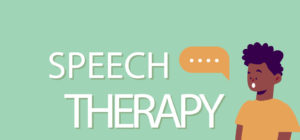Communication is a fundamental aspect of human interaction, shaping our relationships, educational experiences, and overall quality of life. For children facing speech and language challenges, the journey to effective communication can be fraught with obstacles. However, with the support of paediatric speech therapy, these obstacles can be transformed into opportunities for growth and development.
Paediatric speech therapy, also known as speech-language therapy or speech pathology, is a specialised field focused on diagnosing and treating communication disorders in children. From articulation difficulties to language delays and disorders, paediatric speech therapists work with children of all ages to address a wide range of speech and language challenges.
Early intervention is key in paediatric speech therapy, as it allows therapists to identify and address communication issues before they significantly impact a child’s development. By working closely with parents, caregivers, and other healthcare professionals, paediatric speech therapists develop tailored treatment plans to meet each child’s unique needs.
So, what exactly does paediatric speech therapy entail? Here are some common areas addressed by paediatric speech therapists:
- Articulation and Phonology: Some children struggle with pronouncing sounds correctly, leading to speech clarity issues. Paediatric speech therapists use a variety of techniques, such as articulation drills and tongue exercises, to help children produce sounds accurately and improve overall speech intelligibility.
- Language Development: Language delays and disorders can manifest in various ways, including difficulties with vocabulary, grammar, and comprehension. Paediatric speech therapists employ interactive activities, storytelling, and structured language exercises to enhance language skills and foster communication competence.
- Fluency Disorders: Stuttering and other fluency disorders can significantly impact a child’s ability to communicate effectively. Paediatric speech therapists utilise strategies like slow and smooth speech techniques, breathing exercises, and desensitisation activities to help children manage their fluency challenges and communicate with confidence.
- Social Communication: Effective communication extends beyond language proficiency; it also encompasses social skills such as turn-taking, listening, and interpreting nonverbal cues. Paediatric speech therapists employ role-playing, social stories, and group activities to help children develop essential social communication skills and navigate social interactions successfully.
- Feeding and Swallowing: Some children experience difficulties with feeding and swallowing, which can pose significant health risks if left untreated. Paediatric speech therapists assess oral motor function, swallowing coordination, and feeding behaviors to develop targeted interventions aimed at improving feeding safety and efficiency.
The benefits of paediatric speech therapy extend far beyond improved communication skills. By addressing speech and language challenges early on, children gain confidence, enhance their academic performance, and develop stronger social connections. Moreover, paediatric speech therapy can empower children to advocate for their communication needs and navigate the world with greater independence and self-assurance.
Parents and caregivers play a crucial role in supporting their child’s journey through paediatric speech therapy. By actively participating in therapy sessions, practicing recommended exercises at home, and fostering a supportive communication environment, parents can help reinforce the progress achieved in therapy and promote continued growth and development.
Like to know more on this subject get in touch with us today,




